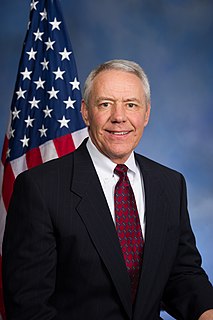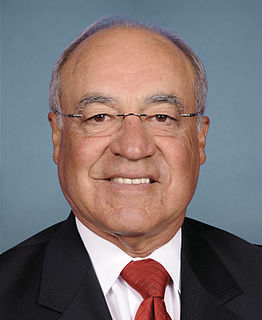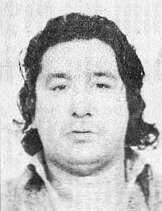A Quote by James Madison
Strongly guarded as is the separation between Religion and Government in the Constitution of the United States, the danger of encroachment by Ecclesiastical Bodies may be illustrated by precedents already furnished in their short history.
Related Quotes
An alliance or coalition between Government and religion cannot be too carefully guarded against......Every new and successful example therefore of a PERFECT SEPARATION between ecclesiastical and civil matters is of importance........religion and government will exist in greater purity, without (rather) than with the aid of government.
The danger of silent accumulations & encroachments by Ecclesiastical Bodies have not sufficiently engaged attention in the U.S. [...] Besides the danger of a direct mixture of Religion & civil Government, there is an evil which ought to be guarded against in the indefinite accumulation of property from the capacity of holding it in perpetuity by ecclesiastical Corporations. [...] The establishment of the chaplainship to Congs. is a palpable violation of equal rights, as well as of Constitutional principles.
Everyone in the United States is so intense about maintaining a separation between Church and State when the real concern should be about keeping a separation between Corporations and State--because in America (and most of the rest of the Western World, for that matter) economics is the real religion.
I consider the government of the United States as interdicted by the Constitution from intermeddling with religious institutions, their doctrines, discipline, or exercises. This results not only from the provision that no law shall be made respecting the establishment or free exercise of religion, but from that also which reserves to the States the powers not delegated to the United States. Certainly, no power to prescribe any religious exercise or to assume authority in any religious discipline has been delegated to the General Government. It must then rest with the States.
Resolved, That the General Assembly of Virginia, doth unequivocally express a firm resolution to maintain and defend the Constitution of the United States, and the Constitution of this State, against every aggression either foreign or domestic, and that they will support the Government of the United States in all measures warranted by the former.
As the government of the United States is not, in any sense, founded on the Christian religion; as it has in itself no character of enmity against the laws, religion or tranquility of Musselmen [Muslims] ... it is declared ... that no pretext arising from religious opinion shall ever product an interruption of the harmony existing between the two countries.... The United States is not a Christian nation any more than it is a Jewish or a Mohammedan nation.
The Constitution is not a law, but it empowers the people to make laws... The Constitution tells us what shall not be a lawful tender... The legislature has ceded up to us the privilege of enacting such laws as are not inconsistent with the Constitution of the United States... The different states, and even Congress itself, have passed many laws diametrically contrary to the Constitution of the United States.
To hold that Congress has general police power would be to hold that it may accomplish objects not intrusted to the general government, and to defeat the operation of the 10th Amendment, declaring that 'the powers not delegated to the United States by the Constitution, nor prohibited by it to the states, are reserved to the states respectively, or to the people.
I will, to the best of my ability, preserve, protect and defend the Constitution of the United States. It is not the Constitution as I would like to have it, but as it is, that is to be defended. The Constitution will not be preserved & defended until it is enforced & obeyed in every part of every one of the United States. It must be so respected, obeyed, enforced and defended, and let the grass grow where it may.
No power but Congress can declare war; but what is the value of this constitutional provision, if the President of his own authority may make such military movements as must bring on war? ... [T]hese remarks originate purely in a desire to maintain the powers of government as they are established by the Constitution between the different departments, and hope that, whether we have conquests or no conquests, war or no war, peace or no peace, we shall yet preserve, in its integrity and strength, the Constitution of the United States.





























